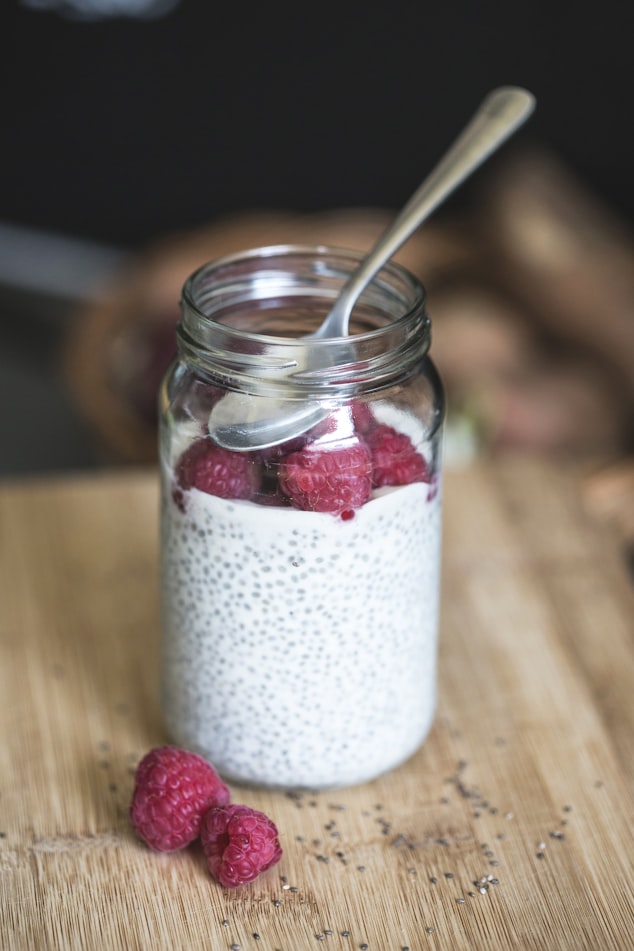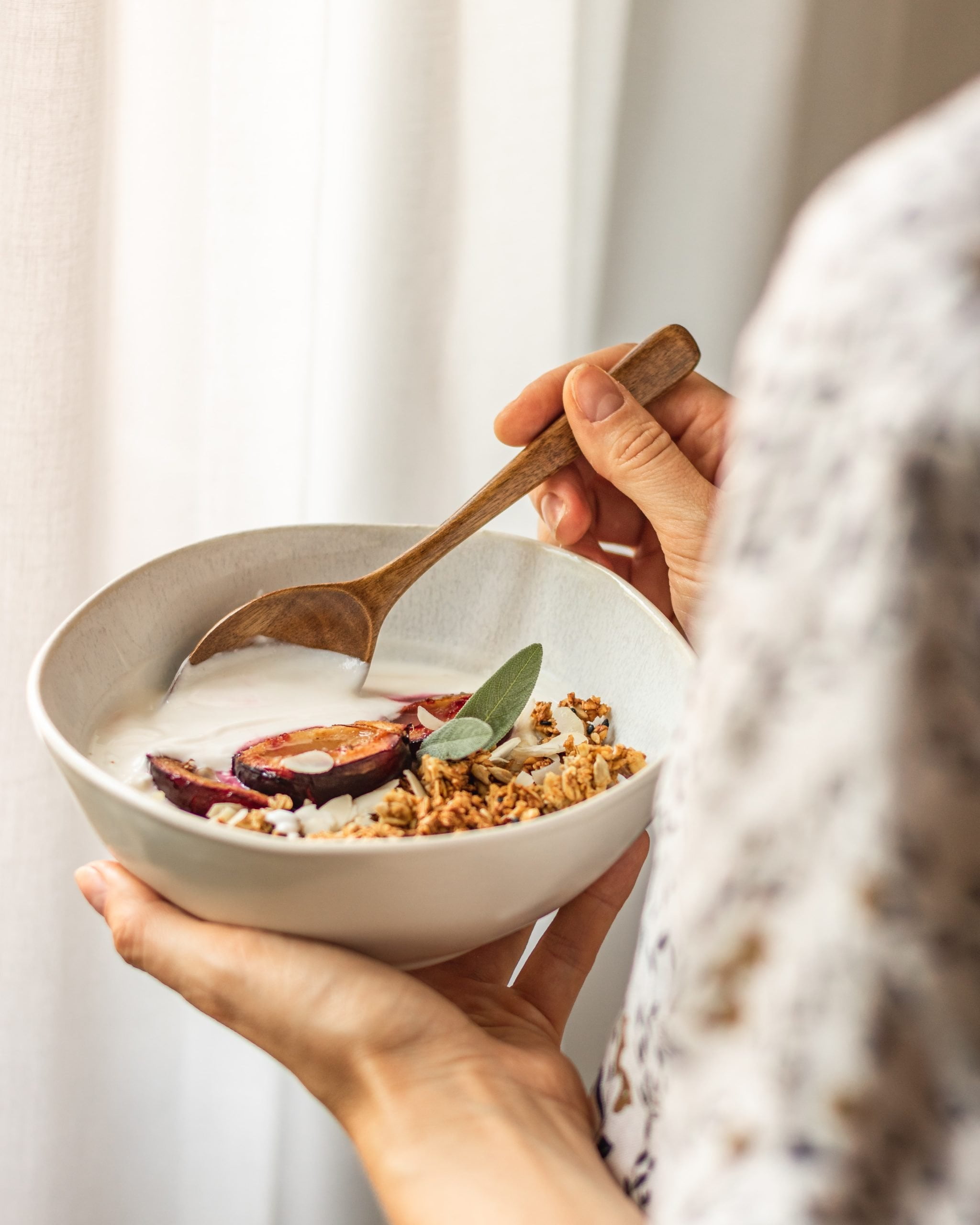Written by Kristina Virro, R.H.N. and Registered Psychotherapist (Qualifying) of Fresh Insight for CSNN)
“I only eat one meal a day—and even then, it’s going to be something from a fast food restaurant,” said Kendra*, tears running down her face. This was the third time I’d met with her in the hopes of improving symptoms associated with depression and anxiety. Recently out of a job, her depression had only gotten worse.
As a psychotherapist in the mental health field, I make hundreds of decisions in a session: Which line of thought should I follow? What interventions might be the most helpful for this person? What’s maintaining this concern? But as someone who is also a Registered Holistic Nutritionist, I ask myself a question that other therapists seldom do: how is this person’s diet affecting their mental health?
Research on the link between one’s diet and mental health has increased over the years and continues to highlight the correlation between these two realms. What’s more, we’re now able to see what specific foods and nutrients are contributing to the improvement or deterioration of one’s mental health.
As it turns out, diet-induced inflammation has been identified as one of the main contributors to mental health disorders. The science behind it is that chronic inflammation sets the stage for neurotransmitter imbalances. As a reminder, neurotransmitters are chemical messengers in the body that affect our mood, memory, concentration, and more, so protecting these little guys is especially important.
Additionally, inflammation catalyzes the production of proteins called cytokines that break down nerve cells that affect our cognition (1). Those with mental health disorders appear to have a number of nutritional deficiencies in common as well, specifically in terms of omega-3 fatty acids, B vitamins, minerals, and amino acids that are precursors to neurotransmitters (2).
Finally, our microbiome plays a major role in the creation and maintenance of neurotransmitters involved in mood regulation such as serotonin and GABA. As a study in Neurogastroenterology & Motility confirmed (3), anxiety and depression are common in patients with chronic gut disorders like IBS, which further highlights the link between our gut and mental health. In fact, studies have revealed that supplementing with probiotics can have a positive affect on one’s mood.
It is clear that all of these factors are coming into play with my client Kendra. Not only is fast food high in trans fats, which promote inflammation, but it is also devoid of nutrients that support neurotransmitter functioning. The lack of probiotics in her diet have also caused the health of her gut to deteriorate, which is likely directly linked to her mood given that 90% of serotonin is produced in the gut.
So, what can we holistic nutrition professionals do to help improve someone’s mood through food?
1. Eliminate trans fats.
All nutritionists can agree that trans fats do nothing but harm our bodies and minds. As a result, it is advisable to stay away from fried foods, microwave dinners, and processed foods like pre-made cookies, pastries, and cakes.
2. Add good fats to the diet, especially omega-3 fatty acids.

DHA is the most prevalent omega-3 fatty acid in brain tissue, and deficiencies have been linked to anxiety-like behaviours (4). However, omega-3 fatty acids are only obtained through our diets given that we can’t produce them naturally. Salmon, herring, sardines, shrimp, trout, halibut, crab, tuna, grass-fed beef, and eggs (particularly those enriched with omega-3) are all amazing sources of this nutrient. Vegans and vegetarians can opt to consume foods like chia seeds, flaxseed oil, algal oil, walnuts, and hemp seeds while supplementing with curcumin, which has been shown to help elevate levels of enzymes involved in DHA synthesis.
3. Limit sugar consumption.
In a study on rodents, it was shown that sugar consumption elevated levels of a certain strain of bacteria in the gut that was not only associated with an increase in gut inflammation, but a decrease in the amount of anti-inflammatory strains of gut bacteria (5).
4. Increase consumption of probiotics.
Fermented foods like kefir, sauerkraut, kimchi, tempeh, and miso all contain probiotics that help increase the number of “good bacteria” in our gut. The benefits of these foods lie in their antioxidant and anti-inflammatory abilities, as well as their ability to reduce intestinal permeability and improve glycemic control. As many clients will come to us with guts that are in poor shape, supplementing with a high-quality, potent probiotic can be very helpful.
 5. Increase consumption of fruits and vegetables, particularly non-starchy vegetables.
5. Increase consumption of fruits and vegetables, particularly non-starchy vegetables.
These foods are high in nutrients yet low in calories, which is an unbeatable combination. Specifically, fruits and vegetables provide nutrients required for optimal neurotransmitter functioning while decreasing inflammation in the rest of the body.
Many people with mental health issues feel powerless to their condition. However, the good news is that our diet and nutritional habits are things we CAN control—and we can start implementing changes right away. It can take months or years to discuss how one’s life history has contributed to their symptoms, but we can change what we put into our mouths starting right now.
Author: Kristina Virro, Registered Holistic Nutritionist and Registered Psychotherapist (Qualifying)
Company: Fresh Insight
Social Media: Website (www.fresh-insight.ca), Instagram (@freshinsighthealth), Twitter (@kristinavirro)
References
- Korn L. Nutrition essentials for mental health: a complete guide to the food-mood connection. New York: W.W. Norton & Company Inc.; 2016.
- Lakhan S, Vieira K. Nutritional therapies for mental disorders. Nutrition Journal. 2008; 7(2): 1-8.
- Bercik P, Park AJ, Sinclair D, Khoshdel A, Lu J, Huang X, et al. The anxiolytic effect of Bifidobacterium longum NCC3001 involves vagal pathways for gut-brain communication. 4. 2011 Dec; 23(12): 1132-9.
- Wu A, Noble E, Tyagi E, Zhe Y, Yumei Z, Gomez-Pinilla F. Curcumin boosts DHD in the brain: implications for the prevention of anxiety disorders. Biochimica et Biophysica Acta. 2015; 951-961.
- Noble E, Hsu T, Kanoski S. Gut to brain dysbiosis: mechanisms linking Western diet consumption, the microbiome, and cognitive impairment. Front Behav Neurosci. 2017; 11(9).

 5. Increase consumption of fruits and vegetables, particularly non-starchy vegetables.
5. Increase consumption of fruits and vegetables, particularly non-starchy vegetables.